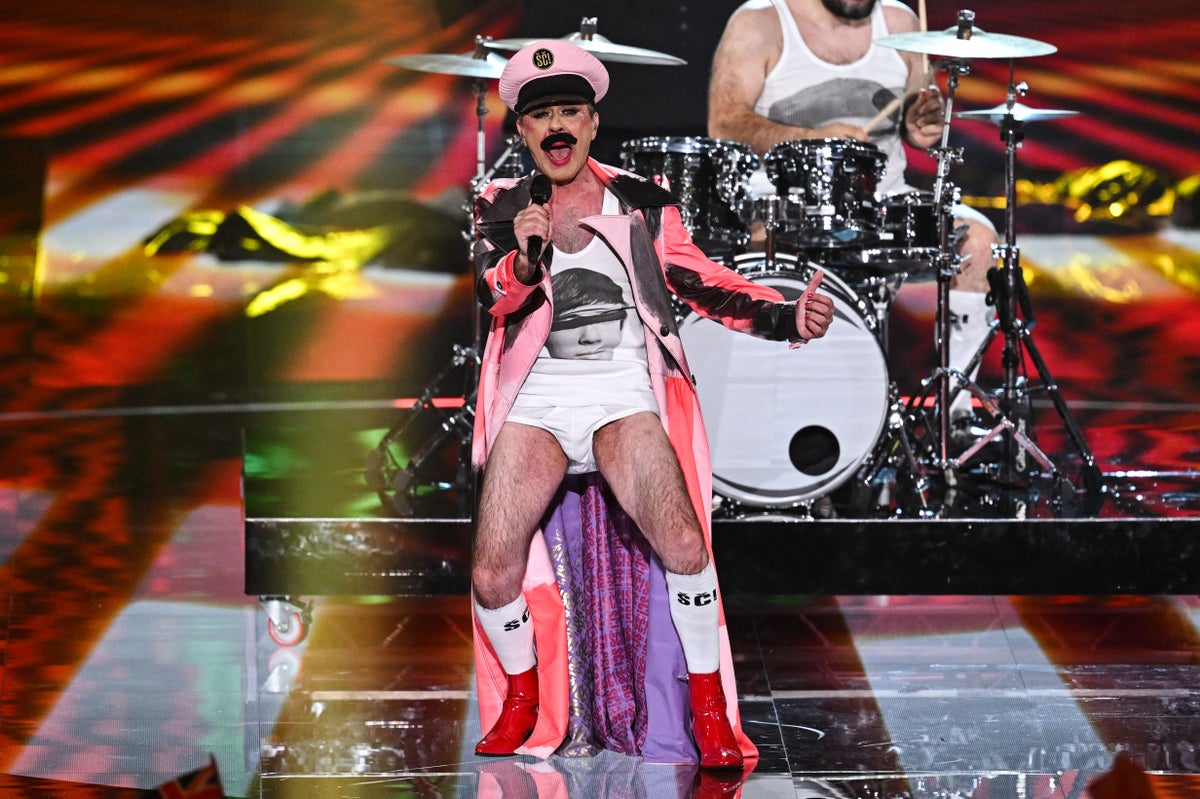
There was drama and plenty of glitter in the 2023 Eurovision final, with Sweden’s champion Loreen dominating the competition and leaving the UK’s Mae Muller in the dust.
This year’s memorable competition took place in Liverpool on Saturday evening (13 May) with 26 countries and their fans descending upon the city’s M&S Bank Arena in the hope of snatching Eurovision glory.
It was anyone’s guess who would take home the trophy, with a strong turnout from many countries including France, Italy, Finland and Norway. Suddenly, the bookies’ frontrunner – Sweden’s Loreen – was no longer looking like such a sure thing.
However, after a tense showdown in the public votes, which temporarily sent Finland to the top of the leaderboard, Loreen proved the bookies right and emerged triumphant thanks to a stunning performance of her song “Tattoo”.
The Stockholm-born singer is the second ever contestant to win Eurovision twice, following in the footsteps of Irish singer Johnny Logan who won the song contest in 1980 and 1987.
Following closely behind Sweden was Finland’s Kaarija and Israel’s Noa Kirel, who placed second and third, respectively.
The UK hosted the competition on behalf of last year’s winners Ukraine, who were unable to host due to their ongoing war with Russia who remain banned from participating in the musical event.
It was as lively an atmosphere as ever thanks to a glorious trio of hosts: Alesha Dixon, Ukrainian singer Julia Sanina, and Ted Lasso star Hannah Waddingham, who once again won over viewers with her fluent French skills.
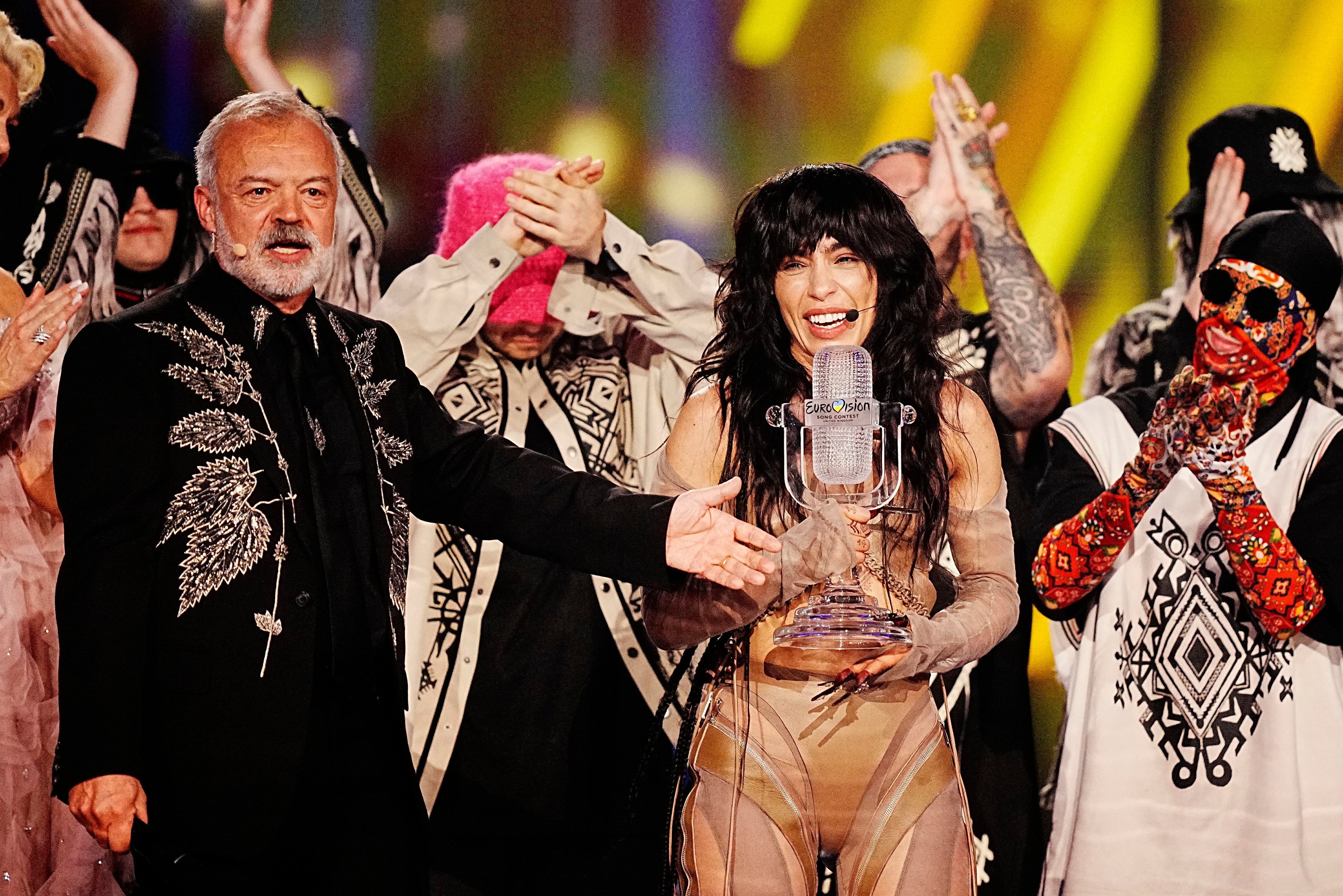
The TV broadcast got off to a surprising start when none other than Kate Middleton joined 2022’s Ukrainian winners Kalush Orchestra for a stunning rendition of their winning track “Stefania”.
The Princess of Wales stunned audiences as she made a brief cameo in the performance, tickling the ivories in a clip that was filmed earlier this month in the Crimson Drawing Room of Windsor Castle.
Stuck with the arguably difficult position of performing last, Mae Muller still managed to impress audiences with her lively performance of “I Wrote A Song”, for which the north London singer donned a striking black bodysuit.
Muller, however, was unable to emulate the success of her predecessor Sam Ryder who swung in at second place for the UK in 2022. Muller came in second-to-last place, receiving a total of only 24 points, including just nine points from the public.
Finland made its mark with a wonderfully outrageous performance by rapper, singer and songwriter Kaarija. Performed in a neon green bolero, the rambunctious tune “Cha Cha Cha” had viewers googling a translation for the lively paen to piña coladas and pints.
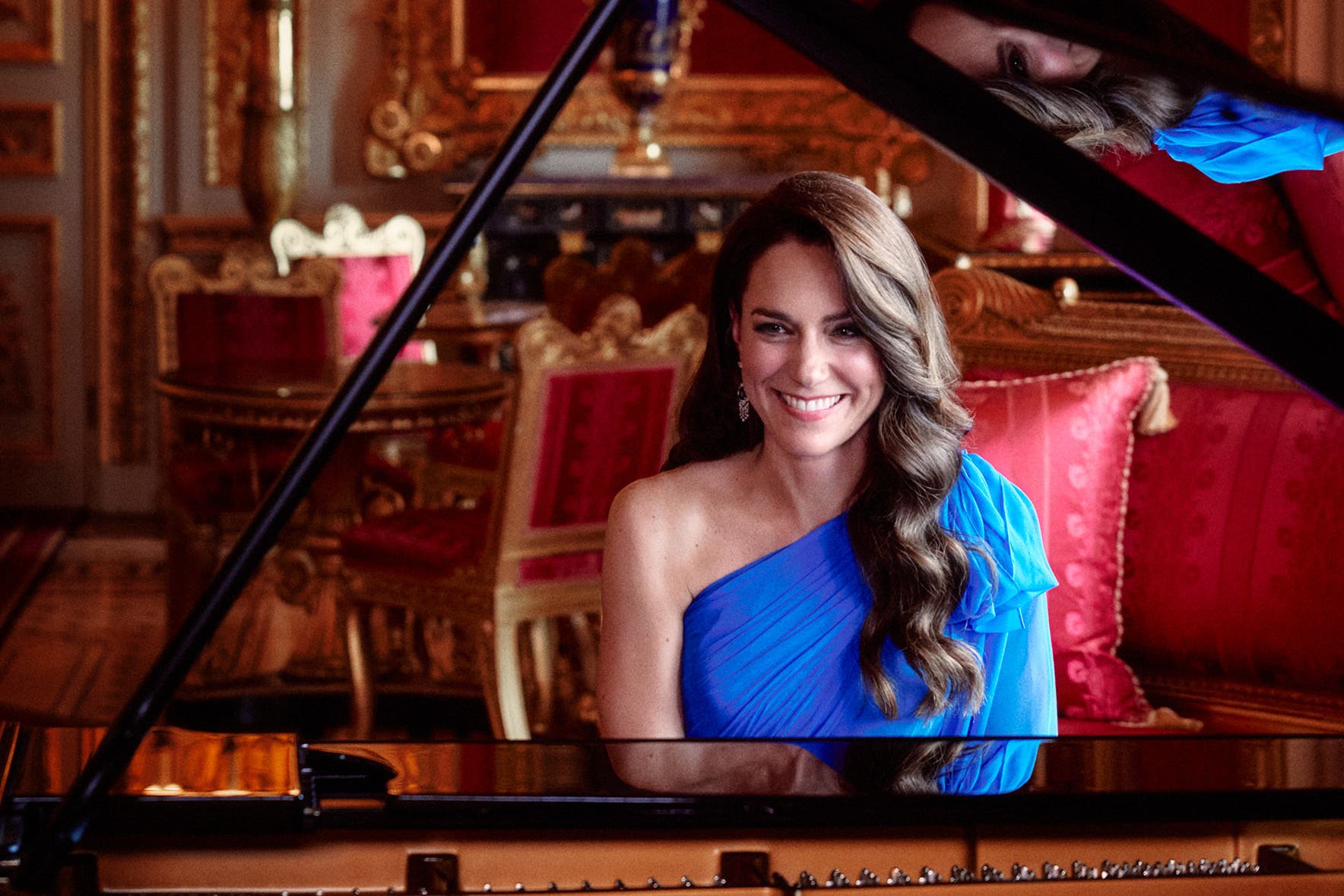
Arguably the most impressive musical moment of the evening arrived courtesy of Norwegian pop star Alessandra. The TikTok star’s song “Queen of Kings” wowed viewers, not least because of its hard-to-hit “whistle note”, which Alessandra achieved effortlessly.
Alessandra’s musical prowess earned her an extraordinary 216 votes from the public, shooting her up to second place with 268 votes.
As ever, there were, of course, a number of spectacular outfits on show. France’s La Zarra served up some Hollywood glamour, wearing a jet black sparkly, figure-hugging gown and matching headpiece as she won over fans with her sweeping ballad “Évidemment”.
Striking a very different sartorial tone was German band Lord of the Lost. It was near impossible to take your eyes off the head-banging, throat-ripping metal band who performed their track “Blood and Glitter” dressed in red and gold outfits with a touch of bondage and a heavy helping of black eyeliner.
You can find all our outfit highlights from the evening here.
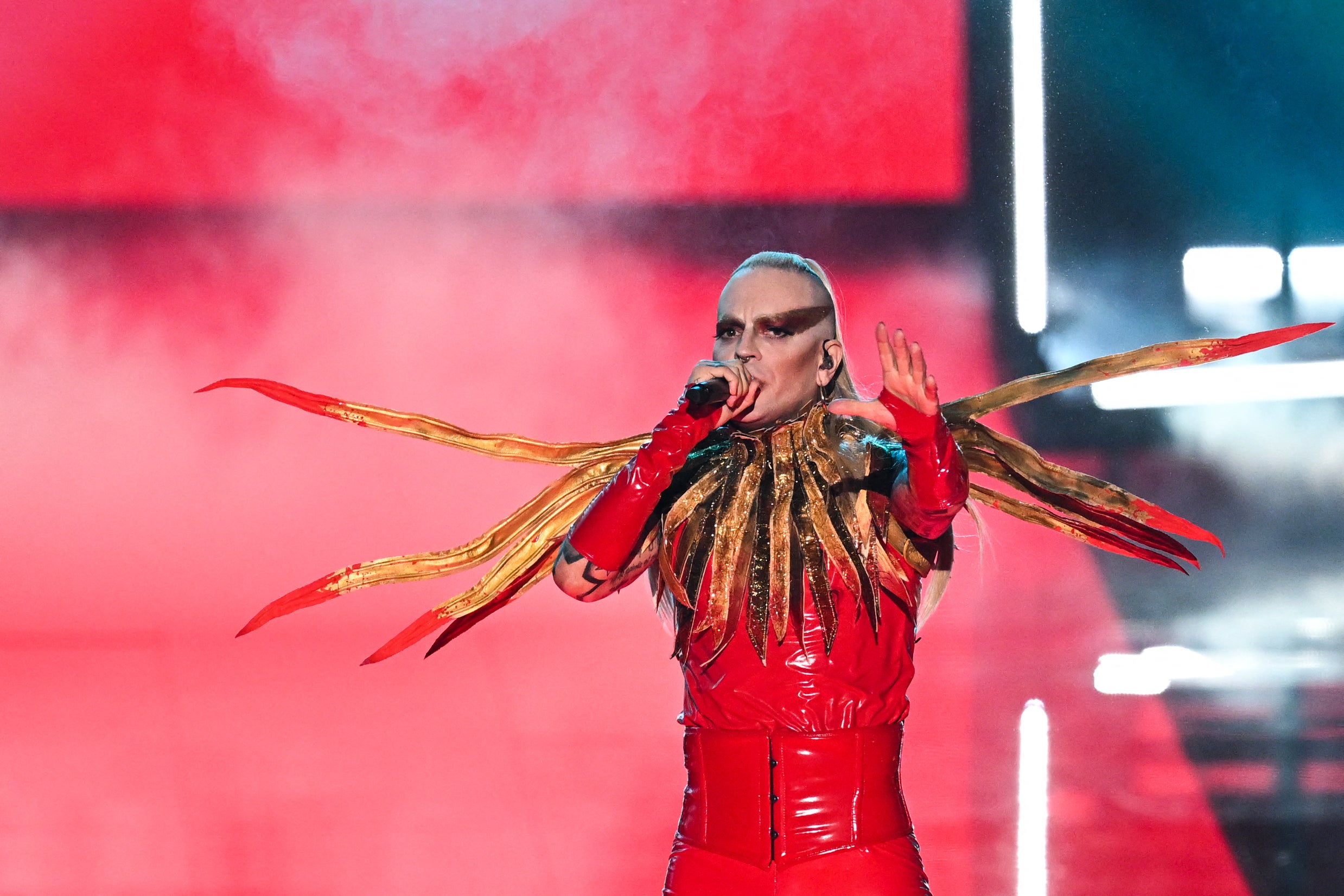
It wouldn’t be Eurovision without Graham Norton. The talk show host managed to complete a double shift as both commentator and presenter this time around, once again earning chuckles from the audience with his sardonic commentary.
Eurovision’s defending champion, Ukraine, was represented this year by electronic music duo Tvorchi who performed their song “Heart of Steel”, which nabbed an impressive 243 votes but failed to secure a top three place.
Looking ahead to next year’s competition, Eurovision 2024 will be hosted by winners Sweden, just in time for the 50th anniversary of Abba’s historic triumph.
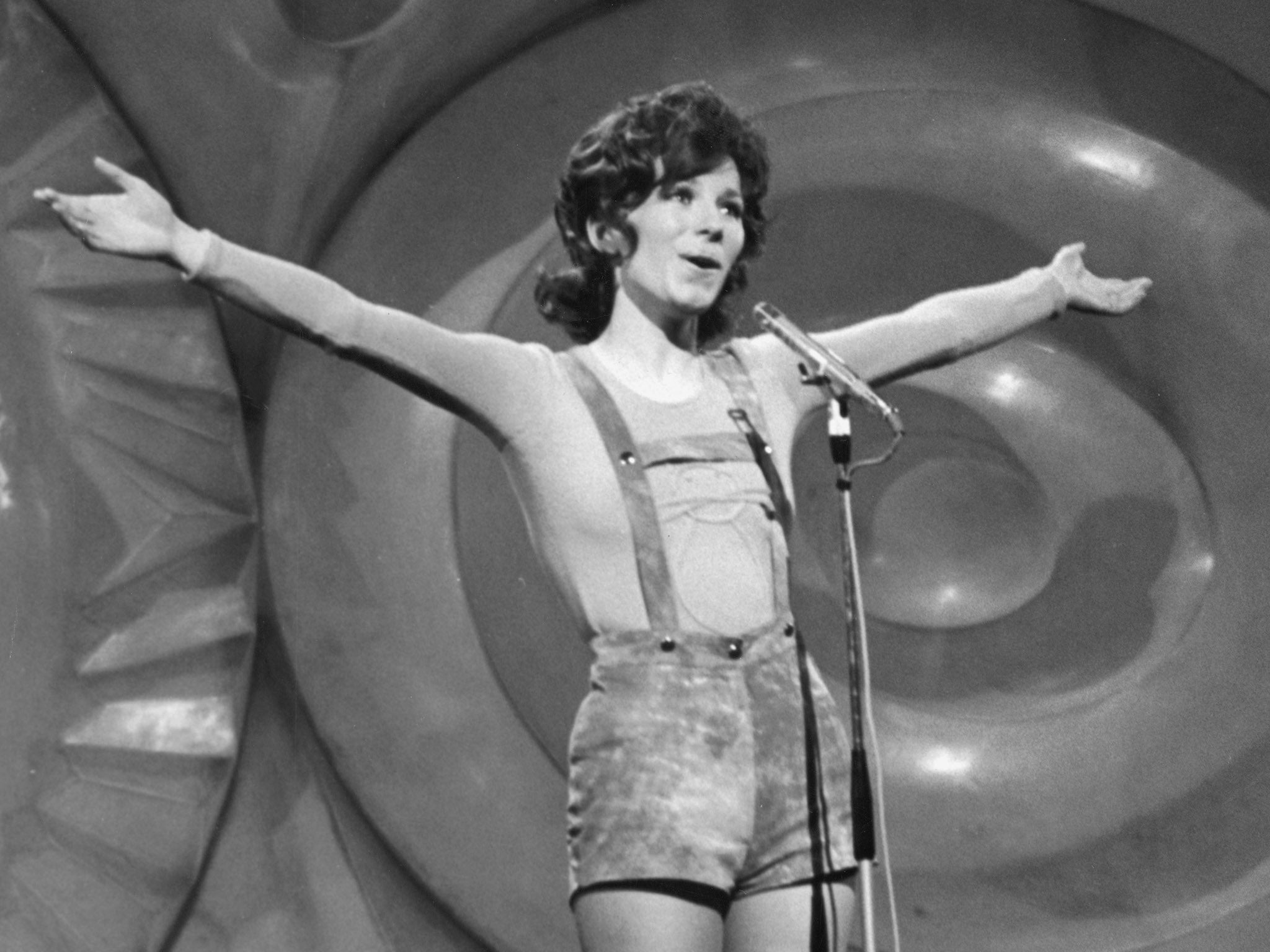
It’s already shaping up to be an exciting event with Luxembourg set to participate for the first time in over three decades.
The country – which has won Eurovision five times before – has not competed since 1993.
You can follow along with our Eurovision updates at our live blog here.







